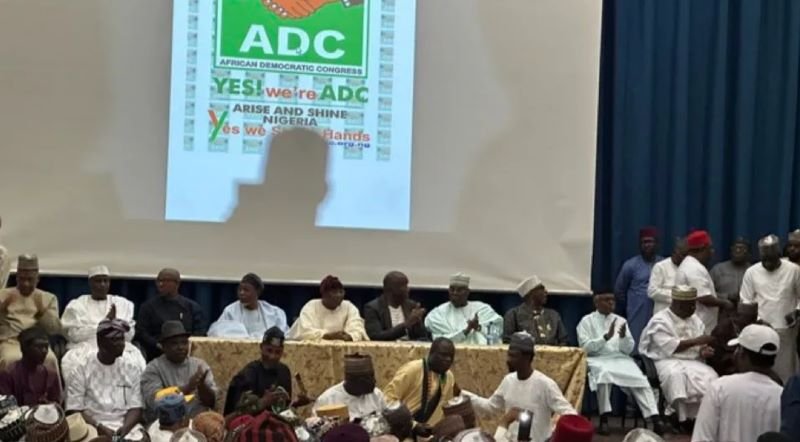IN what analysts are describing as a significant sign of political momentum, the African Democratic Congress (ADC) website crashed three times in just 48 hours, overwhelmed by a surge of Nigerians seeking information and membership following the recent opposition coalition.
The development is being hailed as a barometer of public interest in the emerging alliance between former Vice President Atiku Abubakar and former Anambra State Governor Peter Obi and a few other Nigeria’s most prominent opposition figures.
The political pact, which was formally unveiled on July 3, aims to forge a common front capable of challenging the ruling All Progressives Congress (APC) in the 2027 general elections.
The repeated outages were brought to public attention by Demola Olarewaju, Special Assistant on Digital Media and Strategy to Atiku Abubakar. Taking to the X platform (formerly Twitter), Olarewaju said:
“ADC website has crashed three times since the coalition was announced: Nigerians have been waiting for an alternative to APC, and it is advertising itself already.”
His comments were met with enthusiasm from coalition supporters and those disillusioned with the status quo. According to analyst, Sani Kabo, the volume of traffic overwhelming the party’s website is widely seen as indicative of a growing appetite for political realignment ahead of the next election cycle.
Other political observers are drawing comparisons between the current coalition-building effort and the 2013 merger that gave birth to the APC, a coalition that successfully unseated the Peoples Democratic Party (PDP) after 16 years in power.
The present initiative, led by opposition heavyweights like Atiku and Obi, is seen as potentially capable of replicating that feat, particularly if it can unite Nigeria’s fragmented political base.
“This isn’t just a website crashing. It’s the sound of Nigerians knocking on the door of change,” said a political analyst who asked not to be named. “People want in. They want to participate.”
While the surge in attention has reignited enthusiasm among supporters of both Atiku and Obi, the coalition leaders are urging caution and a focus on institution-building.
Responding to a follower on X who inquired about Peter Obi’s specific role in the coalition, Olarewaju maintained a conciliatory tone:
“May your movement continue to grow also,” he wrote, in a nod to the loyal followers of Peter Obi, popularly referred to as the “Obidients.”
He stressed the importance of growing the coalition organically rather than diving prematurely into debates over presidential candidates or leadership structures.
Observers believe this is a strategic move aimed at avoiding early factionalism, a factor that has historically plagued opposition efforts in Nigeria.
The ADC’s current digital infrastructure challenges, while frustrating to eager supporters, may also serve as a wake-up call to the party’s leadership to invest more in technology and outreach capacity, especially as it morphs into the nucleus of a broader national movement.
For many Nigerians, the website’s repeated crashes are not just technical glitches, they’re symbolic. They reflect the pressure of a rising citizenry hungry for change, unity, and a new political direction.
As one social media user, @ladybirdfatima quipped, “If they can crash a website, maybe they can crash the system that failed them too.”
Whether this coalition can hold, overcome internal differences, and mount a credible challenge in 2027 remains to be seen. But one thing is clear: the Nigerian public is paying attention.







